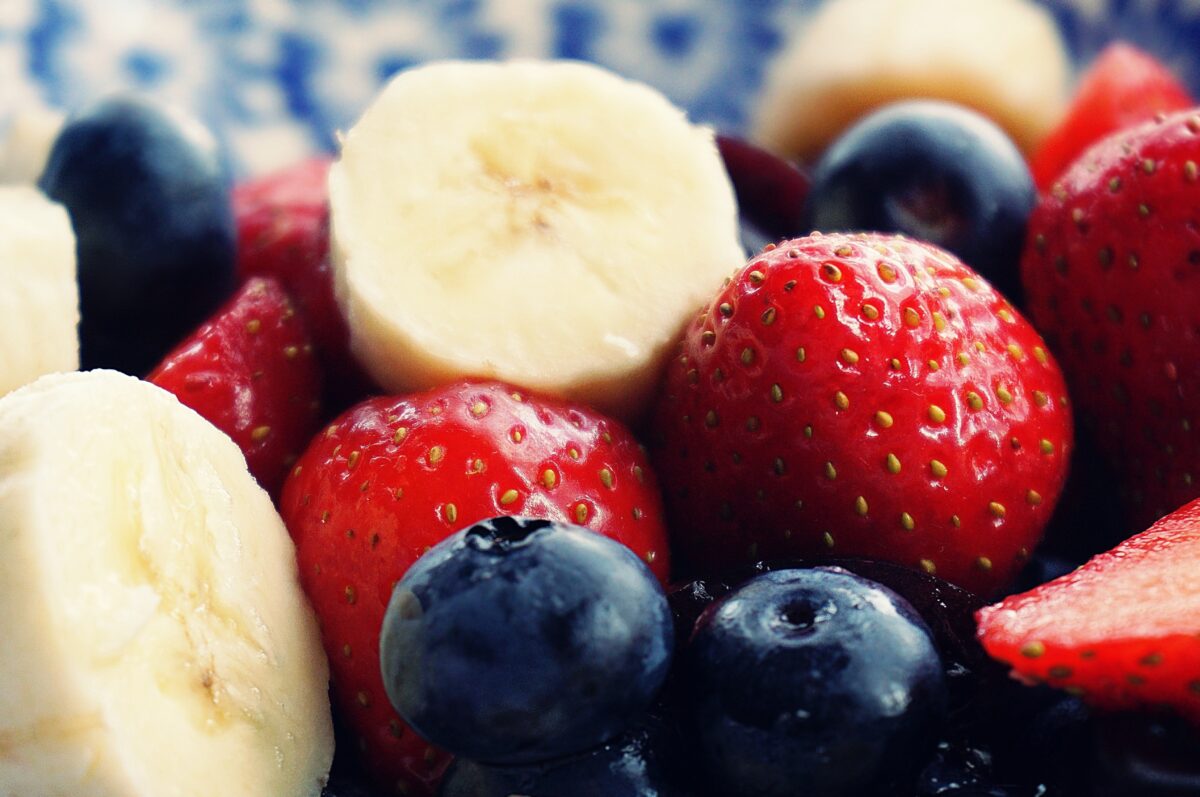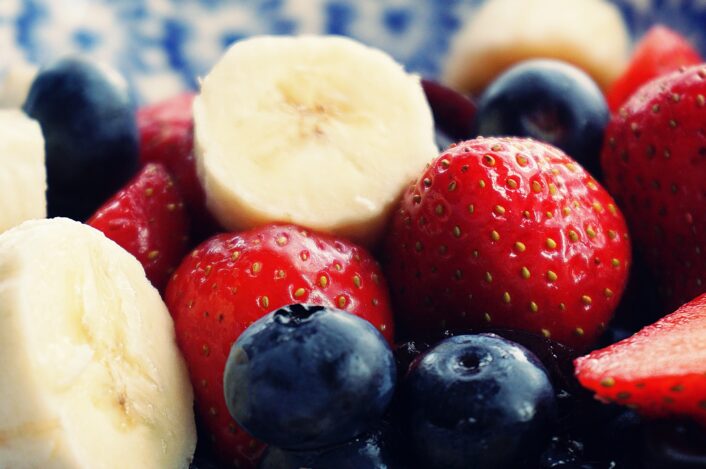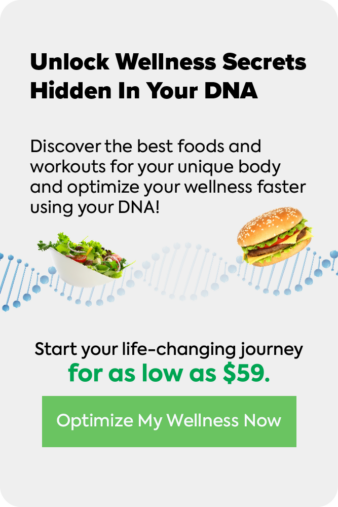Antioxidant Status: The Role of DNA
Aira
on
October 9, 2023

Latest Posts
Table of Contents
The Genetics Of Antioxidants
Date of Content: October 9, 2023
Written by: Avanthika Nityanand
Reviewed by: Maarit Tiirikainen, PhD
What Are Antioxidants?
Antioxidants are molecules that neutralize free radicals in the body. Free radicals are compounds that can cause harm if their levels become too high. They come from various sources, including food, medicines, tobacco smoke, radiation, and various biological processes of the body.

What Do Antioxidants Do?
Free radicals are unstable atoms that can damage cells, thus contributing to aging and diseases. Antioxidants neutralize these harmful free radicals, preventing cellular and DNA damage. The body has its system of providing antioxidants but also sources them from our diet – primarily through fruits, vegetables, and certain types of meat and fish.
According to the National Center for Complementary and Integrative Health, dietary antioxidants include:
- Beta-carotene
- Lutein
- Lycopene
- Selenium
- Vitamin A
- Vitamin C
- Vitamin E
Are Antioxidants Good for You?
Generally, a balanced diet rich in fruits and vegetables – good sources of antioxidants – is most beneficial. Studies show a strong correlation between a diet rich in antioxidants and a reduced risk of chronic diseases like heart disease, cancer, and neurodegenerative diseases.
Protection Against Reactive Oxygen Species
At the cellular level, metabolic processes generate reactive oxygen species (ROS), potentially harmful molecules capable of damaging cellular components, including DNA, proteins, and lipids. Over time, organisms developed antioxidant systems as a defense mechanism against ROS. These systems help maintain cellular integrity and function.
Mitochondrial Function
Mitochondria, often referred to as the powerhouses of the cell, play a critical role in making energy for the cells. While essential for life, this process also produces ROS as a byproduct. Antioxidants help protect mitochondria from ROS-induced damage, ensuring efficient energy production and cellular survival.
Adaptation and Survival
In evolutionary history, environmental stress factors, such as exposure to high radiation levels from the sun, could lead to increased ROS production. Organisms with effective antioxidant systems had a survival advantage, as they could better manage oxidative stress, leading to improved cellular function, DNA integrity, and overall survival.
Complex Antioxidant Systems
Evolution favored organisms with diverse antioxidants, enabling them to respond to various oxidative challenges. This is evident in various antioxidant systems in modern organisms, including enzymes like superoxide dismutase, catalase, and glutathione peroxidase and non-enzymatic molecules like vitamins C, E, and beta-carotene.
Antioxidant-rich Diets and Human Evolution
As early human diets were rich in fruits, vegetables, and other plant-based foods, the intake of dietary antioxidants likely played a role in human evolution. A diet rich in antioxidants could have protected against oxidative stress, supporting overall health, longevity, and reproductive success.
Vitamin C as an Antioxidant
Vitamin C, also known as ascorbic acid, is a potent antioxidant to safeguard against oxidative stress. It also plays a role in collagen production, wound healing, and maintaining cartilage, bones, and teeth. Fruits like oranges, strawberries, and kiwi are abundant sources of vitamin C.
Genetics of Antioxidant Status
Our genetic makeup plays a vital role in determining our body’s antioxidant status, influencing the production of natural antioxidants and the response to antioxidants obtained from dietary sources. A deeper understanding of this relationship has emerged from studying gene polymorphisms related to antioxidant enzymes and their respective functions.
Several genes encoding for antioxidant enzymes have been identified, and their polymorphisms can have profound implications for health and susceptibility to oxidative stress:
SOD (Superoxide Dismutase)
Superoxide dismutases (SODs) are special enzymes in all life forms, from bacteria to humans. Their main job is to protect cells from harmful ROS. Think of ROS as tiny invaders that can harm our cells. SODs defend against these invaders by breaking down a harmful ROS called the superoxide anion free radical (O2-). They convert this harmful molecule into two less harmful substances: regular oxygen that we breathe and hydrogen peroxide. By doing this, SODs help maintain a balance in our cells and prevent excessive amounts of damaging ROS from accumulating.
Different genes encode the three forms of SOD (SOD1, SOD2, SOD3), and polymorphisms in these genes can influence antioxidant capacity. The SOD2 gene polymorphism, Ala16Val (rs4880), in exon 2 is well-studied. This particular single nucleotide polymorphism (SNP) swaps the amino acid at the 16th position from valine (Val) to alanine (Ala). Numerous studies have linked the Ala16Val SNP with variations in the SOD2 enzyme activity, influencing disease progression and risk, including this 2016 meta-analysis.
CAT (Catalase)
The CAT gene encodes for the enzyme catalase, which helps convert hydrogen peroxide, a potential ROS, into water and oxygen. A lack or dysfunction of catalase is theorized to contribute to the onset of several age-related conditions, including cancer, diabetes mellitus, hypertension, anemia, Alzheimer’s disease, Parkinson’s disease, and other chronic conditions such as vitiligo, bipolar disorder, and schizophrenia.
Variations in the CAT gene can lead to differing levels of catalase enzyme activity in the body. A 2016 meta-analysis reviewed the correlation between two prevalent catalase gene polymorphisms (rs1001179 and rs794316) and cancer risk. This analysis encompassed 37 published studies, totaling 14,942 cancer patients and 43,285 individuals without cancer. Both polymorphisms were associated with an increased cancer risk.
GPX (Glutathione Peroxidase)
This family of enzymes, particularly GPX1, encodes the GPx-1 protein. GPx-1 targets hydrogen peroxide, a molecule that can cause damage to our bodies. GPx-1 converts hydrogen peroxide into water. Specific polymorphisms in the GPX1 gene can affect the activity of the GPx-1 protein and, subsequently, the body’s ability to neutralize ROS.
The GPX1 polymorphism Pro198Leu genotype was examined in 82 individuals with prostate cancer and 123 controls. The researchers identified a protective effect from the variant Leu allele of the GPX1 polymorphism against the risk of prostate cancer. Individuals heterozygous for the variant Leu allele exhibited a notably reduced risk of prostate cancer compared to those homozygous for the wild-type.
GST (Glutathione S-transferase)
GST enzymes, encoded by the GST family of genes like GSTM1 and GSTT1, assist in detoxifying and neutralizing certain oxidants. Deletions or null polymorphisms in these genes are associated with reduced enzyme activity and increased susceptibility to oxidative stress-related conditions.
A meta-analysis study indicated that individuals possessing the GSTM1 null genotype, or having both GSTM1 and GSTT1 null genotypes, or those with the GSTT1 null genotype in combination with the GSTP1 A131G variation are at an increased risk of developing prostate cancer.
A 2018 study showed that the absence of the GSTM1 gene was related to a greater likelihood of colorectal cancer spreading to the lymph nodes. The same study also demonstrated that variation in the GSTT1 gene was linked to a higher severity of tumors in colorectal cancer patients.
Section Summary
Understanding these genetic polymorphisms is vital as they provide insight into individual variability in antioxidant capacity and potential disease susceptibility. As personalized medicine and genomics continue to advance, leveraging this genetic information can lead to tailored dietary and therapeutic strategies to optimize antioxidant status for individuals.
Non-genetic Factors Influencing Antioxidant Status
Various environmental and lifestyle factors can impact an individual’s antioxidant status. These include:
- Diet: As the primary external source of antioxidants, what you eat significantly affects your antioxidant levels.
- Smoking and Alcohol: Both can increase oxidative stress, depleting the body’s antioxidant reserves.
- Exposure to Pollution: Living in high-pollution areas can increase the number of free radicals in the body.
- Medications: Some medicines can decrease antioxidant levels or increase free radical production.
How To Improve Your Antioxidant Levels Naturally
Naturally enhancing antioxidant levels is pivotal for optimal health since antioxidants help neutralize free radicals, which can damage cells and contribute to aging and diseases. Here are ways to boost your antioxidant levels naturally:
Eat a Colorful Diet
Fruits and Vegetables
Aim for a variety of colors in your diet. Each color often represents different antioxidant compounds. Blueberries, strawberries, raspberries, blackberries, cherries, grapes, apples, oranges, and pomegranates are particularly rich in antioxidants. Vegetables like kale, spinach, broccoli, bell peppers, beets, carrots, and tomatoes also contain high amounts.
Nuts and Seeds
Almonds, walnuts, flaxseeds, chia, and sunflower seeds are good sources of natural antioxidants
Consume Whole Grains
Grains like quinoa, brown rice, oats, barley, and whole wheat offer beneficial antioxidants.
Herbs and Spices
Spices like turmeric, cloves, cinnamon, oregano, rosemary, and herbs like basil and parsley have antioxidant properties.
Drink Green Tea
Green tea contains antioxidants called catechins that are associated with numerous health benefits.
Include Omega-3 Fatty Acids
Foods rich in omega-3s, like fatty fish (salmon, mackerel, sardines), walnuts, and flaxseeds, have antioxidant properties.
Eat Fermented Foods
Fermented foods like yogurt, kefir, sauerkraut, kimchi, and kombucha are rich in antioxidants and support gut health.
Limit Processed Foods and Sugars
Processed foods can increase oxidative stress. Stick to natural, whole foods.
Limit Alcohol Intake
While moderate consumption of red wine can provide antioxidants like resveratrol, excessive alcohol can increase oxidative stress.
Stay Active
Regular exercise can boost your body’s production of natural antioxidants and help protect cells. Avoid smoking and reduce exposure to environmental pollutants, since these can increase free radical production.
Manage Stress
Chronic stress can result in oxidative stress. Engage in relaxation techniques like meditation, deep breathing exercises, or yoga.
Get Adequate Sleep
Sleep is a time of restoration for the body. Aim for 7-9 hours of quality sleep each night.
Stay Hydrated
Drinking enough water can support your body’s natural detoxification processes.
About the LifeDNA Nutrition Report
The Nutrition Report from LifeDNA offers genetically tailored nutrition insights that can help optimize your wellness. The report delves into your unique genetic predispositions to provide dietary recommendations from macro to micronutrients. Do you have a higher genetic likelihood for lactose intolerance or gluten sensitivity, or how well your body metabolizes caffeine?
The LifeDNA Nutrition report includes an analysis of Antioxidant Status. Get yours here.
Summary
- Antioxidants play a crucial role in neutralizing harmful free radicals in the body.
- While they can derive from natural bodily processes and dietary intake, their importance in combating various diseases is undeniable.
- Both genetic and non-genetic factors can influence an individual’s antioxidant status.
- While antioxidant supplements are available, sourcing them from natural food sources and maintaining a balanced lifestyle is the best approach for most people.
References
- https://www.ncbi.nlm.nih.gov/pmc/articles/PMC4842242/
- https://www.ncbi.nlm.nih.gov/pmc/articles/PMC5325339/
- https://pubmed.ncbi.nlm.nih.gov/18563616/
- https://www.ncbi.nlm.nih.gov/pmc/articles/PMC3506585/
- https://www.ncbi.nlm.nih.gov/pmc/articles/PMC5940415/
- https://www.ncbi.nlm.nih.gov/pmc/articles/PMC9229651/
- https://www.ncbi.nlm.nih.gov/pmc/articles/PMC6076941/
- https://www.ncbi.nlm.nih.gov/pmc/articles/PMC6723656/
- https://www.ncbi.nlm.nih.gov/pmc/articles/PMC6804046/
- https://pubmed.ncbi.nlm.nih.gov/14527634
Customer Reviews




*Understanding your genetics can offer valuable insights into your well-being, but it is not deterministic. Your traits can be influenced by the complex interplay involving nature, lifestyle, family history, and others.
Our reports have not been evaluated by the Food and Drug Administration. The contents on our website and our reports are for informational purposes only, and are not intended to diagnose any medical condition, replace the advice of a healthcare professional, or provide any medical advice, diagnosis, or treatment. Consult with a healthcare professional before making any major lifestyle changes or if you have any other concerns about your results. The testimonials featured may have used more than one LifeDNA or LifeDNA vendors’ product or reports.
- Category: Immunity & Vitamins



